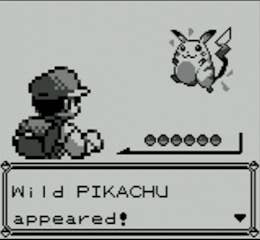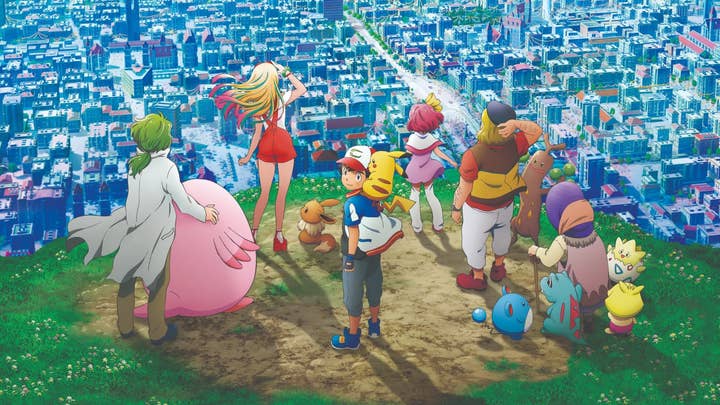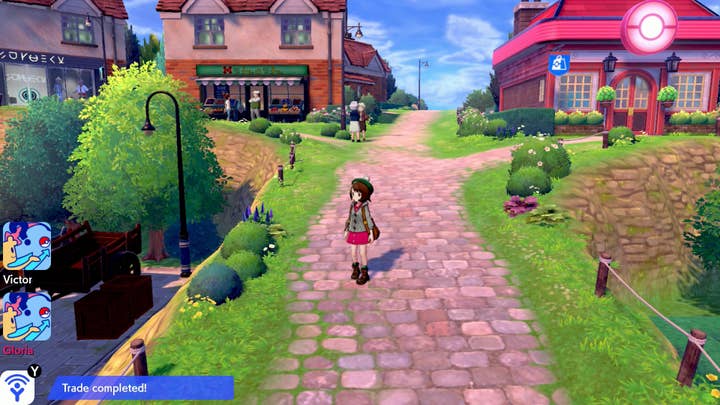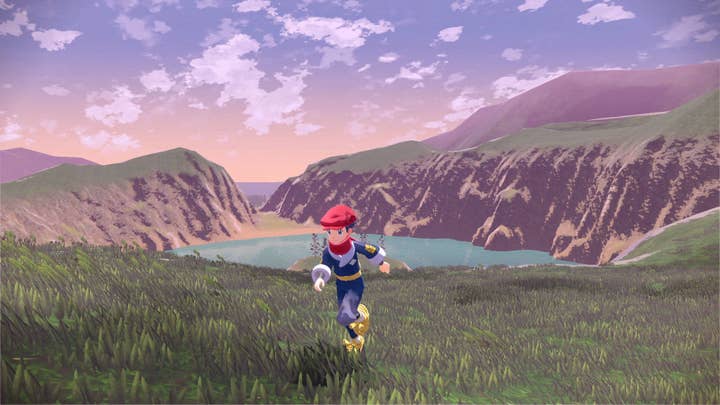Gotta cash 'em all: How Pokémon became the world's biggest games franchise
As the critter-catching phenomenon turns 25, we explore the secrets of its success and where it might lead in the future
The five-minute intro to last week's Pokémon Presents broadcast perfectly demonstrated the sheer scale of the franchise as it stands today.
Starting with the release of the original Pokémon Red and Green in Japan on February 27th, 1996, the rapid-fire montage breathlessly listed the myriad forms of entertainment, merchandise, event and experience that Pikachu and his pals have dipped their toes/paws/claws into over the past 25 years.
More than just a semi-humble brag about how broad the series has become, it is a masterclass in brand management and the primary reason Pokémon has become one of the biggest video games franchises in the world.
Quantifying Pokémon's success is tricky. Estimates from the past few years for lifetime revenues generated by games, movies, merchandise and more range from $90 billion to $100 billion -- made harder to gauge since The Pokémon Company stopped reporting the franchise's total value via its website a few years back.

According to Ampere Analysis' head of games research Piers Harding-Rolls, the last reported figure was over ¥6 trillion ($56.2 billion) in March 2017 -- less than a year after the launch of Pokémon Go and Sun/Moon, and two years ahead of the record-breaking Detective Pikachu live action film.
"If we believe the ¥6 trillion figure is as accurate as it can be, then four years of additional sales will have added a good amount to this total considering all the franchise activity," says Harding-Rolls. "But, in my opinion, $100 billion looks too large even taking all this into account. Still, the numbers do put the Pokémon franchise near the top of the biggest entertainment franchises."
Only four other franchises appear to have passed $50 billion in terms of value: Star Wars, Mickey Mouse, Winnie-The-Pooh and merchandise machine Hello Kitty. None of these have their origins in video games, making Pokémon the biggest games-centric franchise in the world.
But the key term both Harding-Rolls and Midia Research senior analyst Karol Severin use is "entertainment franchise" rather than "games." From the beginning, Pokémon has been more than just the video games at its heart, spawning anime series, movies, books, toys, apparel, food and drinks products -- even passenger jet planes. Again, just watch that opening montage for a glimpse at the full breadth of Pokémon.
"Pokémon's ability to be on the right entertainment platforms, in the right context, at the right time has been remarkable"
Karol Severin, Midia Research
"Pokémon has managed to become a cross-entertainment brand, build cross-generational cultural impact and monetise fandom, in addition to just games consumption," says Severin. "While the efforts of other games franchises often revolve around monetising the consumption of titles, Pokémon has been busy building up and monetising fandom of its story, characters and mechanics."
And that fandom is willing to invest heavily in the franchise. Sevrin points to the results of Midia's Q4 2020 consumer survey, which shows that while Pokémon games had only half the penetration rate of Mario -- 6% of respondents played Pokémon compared to 12% -- those players are more likely to spend $5 or more per month on related games, music, video and more than Mario's fans.
"It's also worth mentioning the successful globalisation of the brand due to a combination of factors," says Harding-Rolls. "These include the multi-cultural appeal of the Pokémon concept, the global trend from the late 1980s to embrace Japanese culture and gaming products, and alignment to the Nintendo brand and its success particularly in the US."
Severin adds that The Pokémon Company's timing is also a factor: "It has always expanded into the right platforms and sectors at the right time - from tabletop trading cards, through morning cartoons on linear TV, to Pokémon Go and its quick pandemic adjustment for indoor life. Pokémon's ability to be on the right entertainment platforms, in the right context, at the right time has been remarkable."

The Pokémon Empire
It's not just Pokémon's presence across the spectrum of entertainment, but also the company's ability to link them all together. For example, one episode of the anime centres around a Magikarp competition -- a nod to mobile title Magikarp Jump. Fans who pre-ordered tickets for the latest Pokémon movie received a new legendary monster and a shiny version of Celebi for Sword and Shield. In fact, movie releases -- whether it's Detective Pikachu or the annual feature-length anime films -- are often celebrated with events in Pokémon Go, Pokémon Masters and the trading card game.

"The whole series just ties in naturally to other areas of itself, so you can enjoy the series in your preferred way without fear of missing out," says Marti Bennett, a Pokémon content creator whose channel Virtually Marti has more than 8,600 subscribers.
"There's always something going on with Pokémon -- it's hard to escape. The franchise also does a fantastic job of bringing in the new audience and keeping things beginner-friendly, as can be seen with Let's Go Pikachu/Eevee and various products to get people started with the trading card game. Other franchises that have been going a long time can seem incredibly daunting to approach."
The sheer number of entry points really underlines how Pokémon has become an entertainment franchise -- to the point where some fans may be oblivious to its origins.
"I've met people that genuinely didn't know there was a video game and it was all about the cards because that's what they remember from school," says Bennett. "The video game circle might be a bit of an echo chamber, feeling like the game is still the 'central' thing.
"If the new games are successful, then their potential as service-based games should deliver consistent revenue growth"
Piers Harding-Rolls, Ampere Analysis
"But over the last year, especially with big influencer name involvement, the Pokémon TCG could potentially be bigger than the video game right now. For example, my partner Joe -- who runs [long-running Pokémon website] Serebii.net -- has been interviewed many times in the past week regarding the 25th anniversary, but it's heavily talking about the Pokemon TCG. No one wants to talk about the video games right now."
Even so, analysts believe the games will remain vital to Pokémon's future, with Harding-Rolls dubbing them the "driving force behind much of the franchise." After all, the monsters featured in the trading cards originate from the video games, as do most of the events, characters and locations featured in the anime.
Severin adds that the games' importance will grow as they become distribution channels for other forms of entertainment and commerce, especially as consumers spend more time in digital environments like Pokémon Go.
"Having said that, in my opinion the key drivers of Pokémon's momentum over time are less connected to the medium -- game versus video versus branded lunchboxes -- and instead revolve around the use of one of the seven timeless story structures -- quests -- combined with beloved appealing characters and competitive/explorative aspects."

This is undoubtedly part of the game's appeal. Each mainline entry follows the same premise: a young boy or girl is given a Pokémon and sets out on a journey to prove themselves as the best trainer, as well as trying to catch and catalogue every Pokémon in existence. As the slogan says, you gotta catch 'em all. It's a timeless challenge, one that offers an alternative to the common video game narrative of beat the baddie and save the world.
"The various formats merely serve as channels to feed those entertainment and cultural concepts through," continues Severin. "The key role of formats is to help contextualise Pokémon's overarching narrative and characteristics to each generation in the right way."
Pokémon Generations
This might be Pokémon's biggest strength: its cross-generational appeal. The game won over players of all ages back in the late '90s and has not only done an admirable job of retaining them, but also continues to draw in new generations along the way.
According to Midia's Q4 survey, 65% of Pokémon players are aged 25 to 44 -- almost certainly driven primarily by the series' original fans and those enticed back via nostalgia. But a full quarter are ages 16 to 24 -- players who would have been too young for the early games, but have found their own way into the franchise over the years. Pokémon has more trouble winning over older generations, with only 4% of players aged 45 to 54 and 6% over 55.
"The next decade will be the true test of Pokémon's cross-generational appeal," says Severin.
That's no understatement. The Pokémon Company finds itself in a precarious position where catering to the needs of its most loyal fans can potentially prevent the franchise from evolving in a way that broadens its appeal. The structure of the mainline games remains relatively untouched, any experimentations with gameplay saved for spin-offs. Even the shift towards open-world gameplay has been reserved for Pokémon Legends, while it was restricted to certain areas in Sword and Shield.
Any dramatic changes to that core formula can be met with a fierce outcry from the most avid fans -- just look at the backlash series developer Game Freak faced when it was revealed Sword and Shield wouldn't include every previous Pokémon. But Bennett hopes this is something the fanbase can move past in order for the series to reach new audiences.
"While Pokémon fans get older and grow up with the games, it's important to remember, it is a game aimed at a younger audience," she says. "A lot of people find that hard to accept. So Pokémon has to get a balance of pleasing the older fan, as well as younger fans or those new to the series."
"There's always something going on with Pokémon -- it's hard to escape"
Marti Bennett, Pokémon content creator
Severin notes that Pokémon appeals to different generations on a variety of levels, and this has helped the series retain its appeal as fans grow older.
"For the youngest [players], Pokémon was an engaging and stimulating way of exploring concepts of right and wrong, competition and fun," he says. "As audiences aged, they could dive into the emotional side of characters and relate, as well as compete and socialize over a common topic with peers.
"For older generations -- the OG Pokémon fans, many of whom now are parents themselves -- Pokémon managed to tap into the right mix of nostalgia and appropriateness. Pokémon Go, for example, encourages movement for young professionals and parents, who consider health and fitness increasingly important.
"Pokémon did the right things for the older generation to want to introduce the brand to new generations. Pokémon festivals are another cross-generational connector which we expect to grow, be it in real life or virtually."
The Next 25 Years
So what's next for Pokémon? The broadcast last week showed the games pillar to be in rude health, with a warm reception for the announcement of both the Diamond and Pearl remakes and open-world outing Pokémon Legends. The anime series continues, as do the associated movies, and a sequel to the Detective Pikachu movie was announced before the original had even hit screens.
But it's the experiments and less traditional games that analysts believe hold the key, with Harding-Rolls pointing to Pokémon Go as a "hugely successful reinvention" of the franchise, bringing the IP into mobile-first markets that haven't previously been exposed to the console games.

With the continued success of Pokémon on mobile, including Masters and Café Mix, the company is opening itself to more service-based games -- and a crucial step in these efforts will be the Tencent-developed MOBA Pokémon Unite, taking the franchise into the same space as League of Legends and DOTA 2.
Severin believes Pokémon will ultimately continue with the winning strategy it has already employed for the past quarter of a century: building and fostering fandom, deploying the right products for the right entertainment channels, and only choosing to change aspects of the Pokémon universe at the right time.
"In doing so, we expect Pokémon to keep reaching deeper and wider across entertainment," he says. "That includes music, since Pokémon Go has inspired thousands of music streaming playlists, live and virtual family events like Pokémon Festival, as well as edging closer to the world of sport via esports.
He adds: "In the future, I would like to see the characters doing more across entertainment, and each aiming for a Pikachu-like celebrity status. The success of League of Legends' virtual band K/DA has been remarkable. Are certain Pokémon characters well equipped to have music careers? Could we see Mewtwo have a stand-up comedy special on Netflix? Is there a reality show angle out there covering the lives of the best Pokémon trainers in the world?"
Harding-Rolls concludes: "The ongoing commercial success of Pokémon Go allows the company to be more experimental with its franchise product strategies. Aside from a shift into new genres, I think we'll see continued use of Pokémon IP in new movies, perhaps a TV series for subscription video services, and in theme parks. If the new games are successful, then their potential as service-based games should deliver consistent revenue growth. I think there is an untapped opportunity in Pokémon-related esports, so I wouldn't be surprised if this scene evolves."
In the meantime, Pokémon fans have plenty to look forward to -- including New Pokémon Snap in April and those Diamond and Pearl remakes later this year -- with each game, movie and TV series offering a new entry point for untapped audiences.

